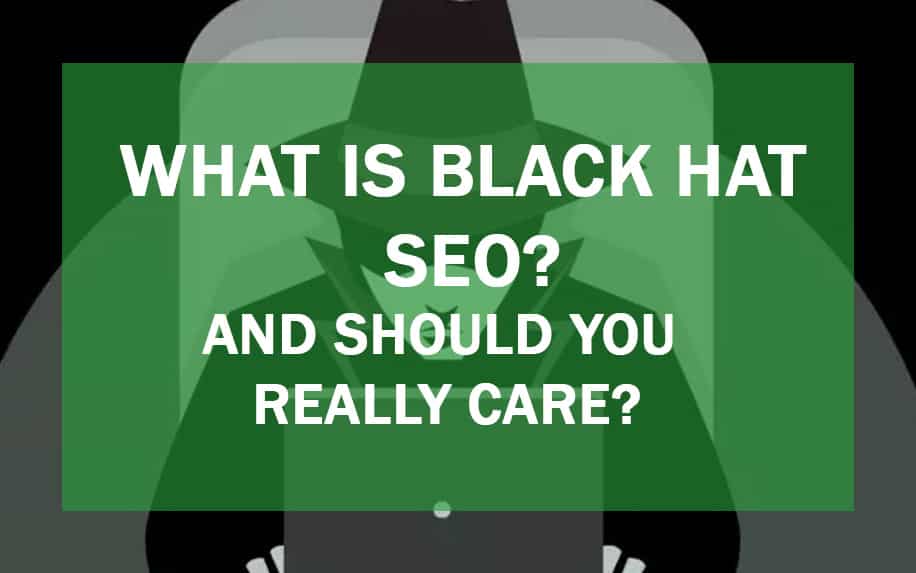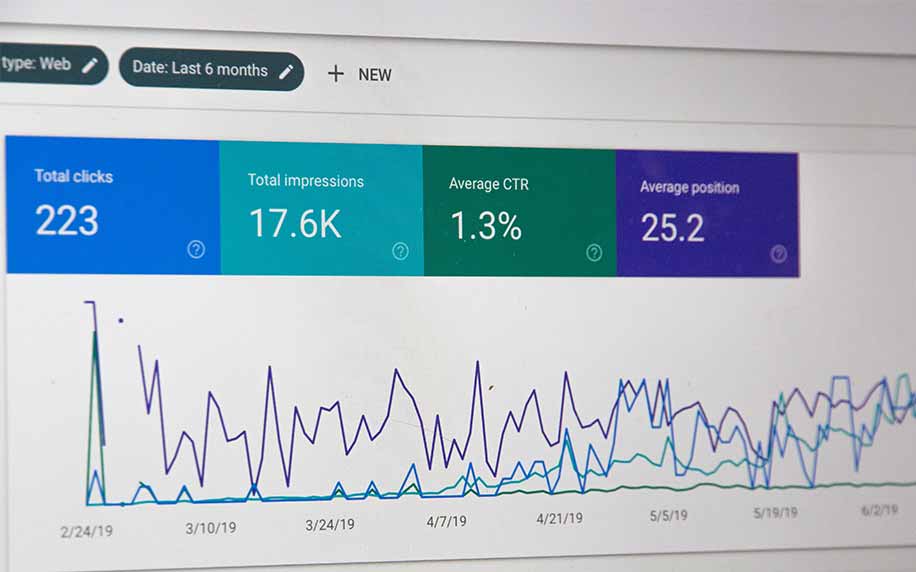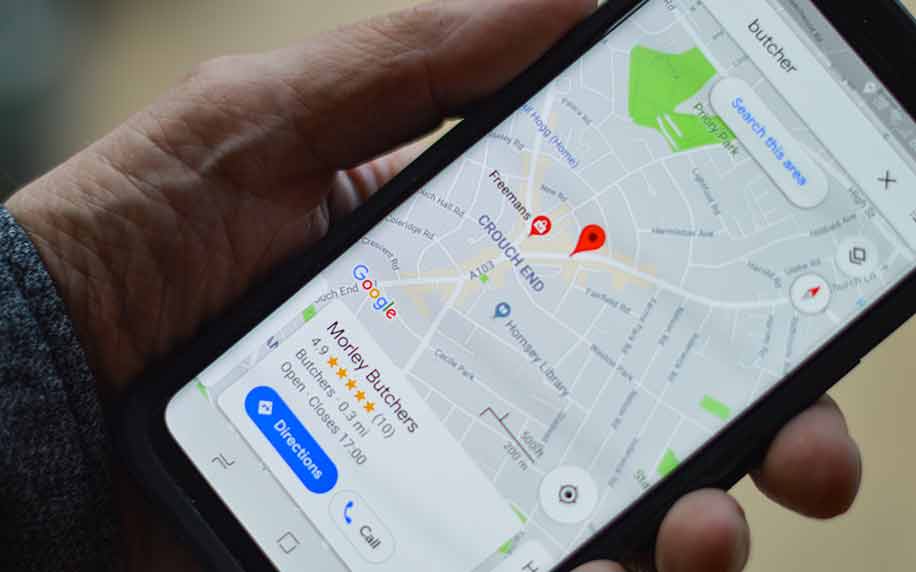What is black hat SEO? Put simply, these are methods used to increase a website’s page rank in a search engine, which violate the search engine’s rules.
Read on and we’ll explain more.
The term “black hat” originated from western movies, where the good guys and the bad guys were distinguished based on the colour of hat they were wearing.
In the competitive realm of online visibility, where websites vie for attention in a sea of information, understanding the ethical and unethical approaches to search engine optimization (SEO) is crucial for success. While ethical SEO practices emphasize creating valuable, informative content that genuinely serves users, black hat SEO employs manipulative tactics to artificially inflate rankings and gain an unfair advantage.
This article delves into the dark side of SEO, exploring the insidious world of black hat techniques and their detrimental impact on websites. We’ll uncover common black hat practices, examine the perilous consequences of employing these unethical methods, and contrast them with the principles of ethical SEO, which emphasizes long-term sustainability and genuine value for users.

Defining what black hat SEO tactics are can be a bit tricky. It’s important to remember that SEO is constantly changing. This means black hat SEO tactics are always changing as well.
IN A RUSH?! Click for our < 2-minute snapshot
Table of Contents
Black Hat SEO: Why You Should Care
So what is black hat SEO actually used for?
In truth, there are a number of consequences to employing black hat SEO. While black hat SEO techniques can seem like a quick way to get your website to show up in the search engines, the penalties from Google and other search engines can be devastating.
You could be de-indexed completely from a search engine. With so many people turning to Google, your business likely won’t survive without a strong web presence.
If you’re building a long-term business, you should not do any black hat SEO.
What is Grey Hat SEO?
While black hat SEO is easy to pin down, grey hat SEO is a little trickier. This is somewhere between black and white hat SEO. It’s made up from methods that haven’t quite been defined by material from Google.
Since there is a grey area, reasonable people can disagree on if these tactics and methods support or contrast with Google’s published guidelines.
Grey hat SEO changes quite a bit. One year a certain technique could be considered grey hat, but then the next it could move into black hat territory or even white hat territory.
Search Engine Terms
Understanding the search engine’s terms is the best way to avoid grey hat SEO techniques.
Sometimes it feels like Google’s best practises and the conditions that are set aren’t in the best interest of search marketers, or even those who search on the engine.
However, it’s important to stay on top of everything in order to avoid anything that could be grey hat SEO.
Since grey hat SEO can be so confusing, it’s hard to know what the best solution is. It can either help your website, or it could lead to disastrous results, just like black hat SEO would.
If you aren’t sure if a certain tactic is going to violate Google’s guidelines, it’s probably best to avoid it. You won’t gain anything from getting on the search engine’s bad side, and even grey hat SEO can hurt you in the long run.
A search marketer will have to weigh the risk and reward for what makes sense for the business.
With algorithms getting stricter all the time, it’s a good idea to avoid any black or grey hat technique and stay strictly white hat.

Black Hat SEO Techniques to Avoid
Black Hat SEO techniques usually revolve around taking the easy way out of SEO efforts.
Things that can be considered black hat include:
- Content automation,
- Keyword stuffing,
- Sneaky redirects,
- Article spinning,
- Link farms,
Negative SEO, also known as reporting a competitor, can be considered black hat SEO techniques too. Keywords are a huge part of SEO, but they can also be part of a black hat strategy if not used correctly.
Unrelated keywords should not be added. The content on the page should only be focused on a specific topic, so users find what they want on the page.
In addition to not adding irrelevant keywords, adding too many keywords can indicate a black hat strategy. Sentences should make sense and keywords should not just be put on the page for no reason.
Spam is related to a lot of other bad SEO practises. Using software that generates keyword phrases and text will not be good for your site.
Spend time on blog posts so that they sound real and aren’t stuffed with keywords. The same spam goes for auto-generated comments on blogs, or other forums that help increase the number of inbound links.
These spam practises definitely qualify as black hat. Using software to ping servers of new content, to give the illusion that content is new, is not good. You should instead set up blogging software to ping centralised servers once a new blog post is actually published.
Link Generation

Link generation is an important part of SEO, but it needs to be organic and you need to be careful doing it.
Using link farms became an easy way to get a high number of backlinks for websites and worked for quite some time, but it has since become a black hat practise.
Doorway pages refer to when there are fake pages that are overloaded with keywords that are easier to find with search engines.
However, when a user clicks on the page, it automatically will redirect them to a separate page. Some marketers think they can get away with these black hat techniques by hiding them.
For example, they will hide keywords in white text on a white page or set the font size to zero so the user can’t easily see them. However, this text is still visible to the search engine in the source code and search engines have caught on to this type of behaviour.
Black vs White Hat SEO
When you think about the different tactics used, it’s sometimes very easy to compare black vs white hat SEO. The times when it’s not easy to compare the two is when it’s referred to as grey hat SEO.
Black hat SEO tactics are more related to the search engine and doing whatever it takes to get higher rankings in the search results, even if that means breaking the rules set out by the engine itself.
White hat SEO is SEO designed for the human audience.
It’s about putting out content that is relevant to the website user in order to gain the trust of the user and help build a following that is rewarded by search engines.
White hat SEO is about creating quality content that includes keywords naturally and is valuable to the user. White hat SEO tactics take a lot more time that black hat techniques, but are worth it in the long run.
It may seem that keywords are less important with white hat SEO techniques, but that’s not true.
Keywords
Keywords have evolved over time to be less about a single word and more about a phrase, or what is known as a long tail keyword. A long tail keyword gives more specifics to your product or service, and is therefore more effective.
This makes keyword research even more important so you find the right specific keywords that will drive traffic to your website. In addition to paying attention to the content on your website, the meta descriptions are an important white hat SEO technique.
These are the first couple of sentences that appear in the search engine and should be written for the people, not the search engine. If they include keywords, they should only include relevant keywords and only describe the content that can be found on that page.
Backlinking is still relevant, even though link-farming practises have been banned.
It’s not so much about the quantity of links, as it is about the quality of links. Google sees links as a vote of confidence for your website. If other sites are linking to your website, that must mean you have good content that people find relevant and the reward is a higher ranking.
There can still be bad links, so if there are sites linking to you, make sure they are relevant sites and do backlink audits to find any links that may have to be removed.
Your website should have internal links, as long as they aren’t overused. Too many overused internal links can go into the black hat territory, but a good number is two to three links to deep seeded pages on your website.
When thinking about white hat vs black hat SEO, have the website user in mind, instead of the search engine.
The user experience on your website is an important aspect of SEO and, if you are paying attention to the user, you will be focusing more on white hat techniques instead of black hat techniques.
Is Black Hat SEO Illegal?
Black hat SEO won’t cause you to go to jail and is not considered a crime, but by participating in black hat SEO techniques your online business can suffer some serious consequences.
One of the severe consequences of black hat SEO is getting your website banned from the search engine. If your website is banned by Google, you will likely not be able to use that domain again and instead have to switch to a new domain.
Many business names are tied with the domain name, so you will likely have to change your brand name as well.
If you have to change your brand name, then you will lose all your marketing efforts that you have done in order to help increase brand awareness. You will likely have wasted a lot of time and money in the process that could have been avoided with the right SEO techniques in the beginning.
Reporting Black Hat SEO
It’s possible to report SEO that is black hat, but you must be careful doing so.
If your website has been compromised with a malicious hack or with negative SEO, you can file a WebSpam report in Google Search Console (formerly called Google Webmaster Tools).
However, this tool is not just to be used to help your position. Doing this in order to help your SEO position would actually be considered black hat. However, you can use this tool to report real black hat SEO or if your website is targeted.
If your website has been targeted through malware, you can request a malware review after you remove all the malicious code.
If your website has been the target of negative SEO and part of someone else’s bad hat techniques, you can use the disavow links tool in Google Search Console and try to remove the spammy links.
Black Hat SEO: Risky Tactics that Can Destroy Your Website
In the quest for website prominence, the allure of black hat SEO techniques can be tempting. However, this path paved with shortcuts and deceptive practices is fraught with risk, leading to potential penalties, diminished credibility, and ultimately, the downfall of your website. To safeguard your online presence and ascend the ranks of search engines ethically, it’s crucial to understand the dark side of SEO and steer clear of its detrimental tactics.
Unmasking Black Hat SEO: A Descent into Deception
Black hat SEO encompasses a range of manipulative techniques that exploit search engine algorithms to achieve higher rankings. These methods prioritize short-term gains over long-term sustainability, disregarding user experience and violating search engine guidelines.
Common Black Hat SEO Practices: A Glimpse into the Abyss
- Keyword Stuffing: Overloading content with excessive keywords, making it unnatural and difficult to read.
- Content Cloaking: Presenting different content to search engine robots than to actual users, a deceptive tactic to manipulate rankings.
- Link Schemes: Engaging in link farms or purchasing backlinks to artificially inflate link popularity.
- Hidden Text: Hiding text from users by using white text on a white background or CSS positioning.
- Doorway Pages: Creating low-quality pages designed solely to attract search engine traffic, but offer no value to users.
The Perilous Consequences of Black Hat SEO: A Descent into Darkness
The allure of quick results can be blinding, but engaging in black hat SEO tactics comes with severe consequences that can undermine your website’s integrity and hinder its long-term success:
- Search Engine Penalties: Search engines like Google actively seek out and penalize websites that employ black hat techniques, leading to lower rankings or even removal from search results.
- Diminished Credibility: Black hat SEO tarnishes your website’s reputation, making it difficult to gain trust from users and establish authority in your industry.
- User Experience Degradation: Deceptive practices like keyword stuffing and hidden text create a negative user experience, driving visitors away and damaging your brand image.
- Legal Ramifications: Certain black hat SEO tactics, such as copyright infringement and deceptive advertising, can land you in legal trouble.
EEAT: A Beacon of Ethical SEO
In stark contrast to the deceptive nature of black hat SEO, ethical SEO practices adhere to the principles of EEAT: Expertise, Experience, Authoritativeness, and Trustworthiness. By embracing these principles, you can build a strong foundation for sustainable growth and success:
- Expertise: Ensure your content is created by experts in your field, providing valuable insights and accurate information.
- Experience: Showcase the experience of your content creators, demonstrating their credibility and knowledge.
- Authoritativeness: Establish your website as a trusted source of information, earning recognition from industry peers and users alike.
- Trustworthiness: Foster a sense of trust by being transparent, providing accurate information, and respecting user privacy.
Navigating the SEO Landscape: A Path of Ethical Excellence
Achieving sustainable success in the SEO realm requires a commitment to ethical practices and a deep understanding of search engine guidelines. Embrace transparency, prioritize user experience, and create content that genuinely provides value. Remember, black hat SEO may offer fleeting gains, but ethical SEO paves the path for long-term success and a strong online reputation.
FAQ
Q: What is black hat SEO?
A: Black hat SEO encompasses a range of deceptive practices that exploit search engine algorithms to achieve higher rankings. These methods prioritize short-term gains over long-term sustainability, disregarding user experience and violating search engine guidelines.
Q: What are the common black hat SEO practices?
A: Some common black hat SEO practices include keyword stuffing, content cloaking, link schemes, hidden text, and doorway pages.
Q: What are the consequences of using black hat SEO?
A: The consequences of using black hat SEO can be severe, including search engine penalties, diminished credibility, user experience degradation, and legal ramifications.
Q: What is EEAT in SEO?
A: EEAT stands for Expertise, Experience, Authoritativeness, and Trustworthiness. These principles are the cornerstones of ethical SEO, ensuring that websites are built on a solid foundation of credibility and value for users.
Q: How can I avoid using black hat SEO?
A: To avoid using black hat SEO, focus on creating high-quality content that genuinely serves users. Build backlinks through ethical means, such as guest blogging or creating valuable resources. Prioritize user experience by providing a fast loading website and a user-friendly interface.
Conclusion
The pursuit of quick fixes and temporary gains through black hat SEO is a perilous path that can lead to the downfall of your website. By understanding the risks and consequences of these deceptive tactics, you can safeguard your online presence and embark on the ethical journey of sustainable SEO success. Embrace the principles of EEAT, prioritize genuine value for users, and create content that stands the test of time. Remember, ethical SEO is not just about ranking higher; it’s about building a website that stands as a beacon of credibility and authority in your industry.


